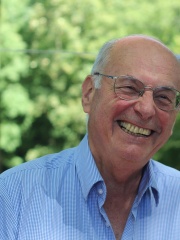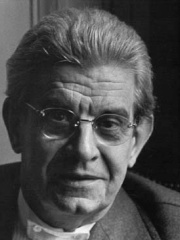
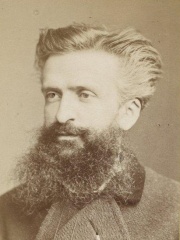
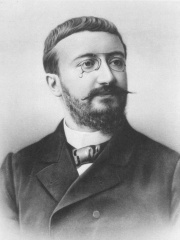
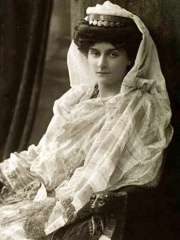
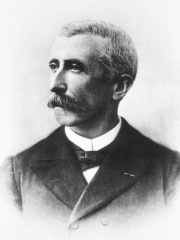
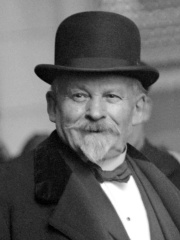
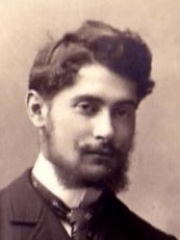
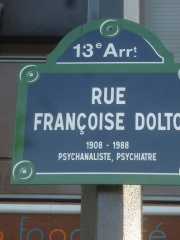
The Most Famous
PSYCHOLOGISTS from France
This page contains a list of the greatest French Psychologists. The pantheon dataset contains 235 Psychologists, 12 of which were born in France. This makes France the birth place of the 5th most number of Psychologists behind United Kingdom, and Austria.
Top 10
The following people are considered by Pantheon to be the top 10 most legendary French Psychologists of all time. This list of famous French Psychologists is sorted by HPI (Historical Popularity Index), a metric that aggregates information on a biography's online popularity. Visit the rankings page to view the entire list of French Psychologists.

1. Jacques Lacan (1901 - 1981)
With an HPI of 80.10, Jacques Lacan is the most famous French Psychologist. His biography has been translated into 66 different languages on wikipedia.
Jacques Marie Émile Lacan (UK: , US: lə-KAHN; French: [ʒak maʁi emil lakɑ̃]; 13 April 1901 – 9 September 1981) was a French psychoanalyst and psychiatrist. Described as "the most controversial psycho-analyst since Freud", Lacan gave annual seminars in Paris from 1952 to 1980 and published papers that were later collected in the book Écrits. Transcriptions of the seminars 1953–1980 were published. His work made a significant impact on continental philosophy and cultural theory in areas such as post-structuralism, critical theory, feminist theory and film theory, as well as on the practice of psychoanalysis itself. Lacan took up and discussed the whole range of Freudian concepts, emphasizing the philosophical dimension of Freud's thought and applying concepts derived from structuralism in linguistics and anthropology to its development in his own work, which he would further augment by employing formulae from predicate logic and topology. Taking this new direction, and introducing controversial innovations in clinical practice, led to expulsion for Lacan and his followers from the International Psychoanalytic Association. In consequence, Lacan went on to establish new psychoanalytic institutions to promote and develop his work, which he declared to be a "return to Freud", in opposition to prevalent trends in psychology and institutional psychoanalysis collusive of adaptation to social norms.

2. Gustave Le Bon (1841 - 1931)
With an HPI of 77.78, Gustave Le Bon is the 2nd most famous French Psychologist. His biography has been translated into 53 different languages.
Charles-Marie Gustave Le Bon (7 May 1841 – 13 December 1931) was a leading French polymath whose areas of interest included anthropology, psychology, sociology, medicine, invention, and physics. He is best known for his 1895 work The Crowd: A Study of the Popular Mind, which is considered one of the seminal works of crowd psychology. A native of Nogent-le-Rotrou, Le Bon qualified as a doctor of medicine at the University of Paris in 1866. He opted against the formal practice of medicine as a physician, instead beginning his writing career the same year of his graduation. He published a number of medical articles and books before joining the French Army after the outbreak of the Franco-Prussian War. Defeat in the war coupled with being a first-hand witness to the Paris Commune of 1871 strongly shaped Le Bon's worldview. He then travelled widely, touring Europe, Asia and North Africa. He analysed the peoples and the civilisations he encountered under the umbrella of the nascent field of anthropology, developing an essentialist view of humanity, and invented a portable cephalometer during his travels. In the 1890s, he turned to psychology and sociology, in which fields he released his most successful works. Le Bon developed the view that crowds are not the sum of their individual parts, proposing that within crowds there forms a new psychological entity, the characteristics of which are determined by the "racial unconscious" of the crowd. At the same time he created his psychological and sociological theories, he performed experiments in physics and published popular books on the subject, anticipating the mass–energy equivalence and prophesising the Atomic Age. Le Bon maintained his eclectic interests up until his death in 1931. Ignored or maligned by sections of the French academic and scientific establishment during his life due to his politically conservative and reactionary views, Le Bon was critical of majoritarianism and socialism.

3. Alfred Binet (1857 - 1911)
With an HPI of 73.71, Alfred Binet is the 3rd most famous French Psychologist. His biography has been translated into 48 different languages.
Alfred Binet (; French: [binɛ]; 8 July 1857 – 18 October 1911), born Alfredo Binetti, was a French psychologist who together with Théodore Simon invented the first practical intelligence test, the Binet–Simon test. In 1904, Binet took part in a commission set up by the French Ministry of Education to decide whether school children with learning difficulties should be sent to a special boarding school attached to a lunatic asylum, as advocated by the French psychiatrist and politician Désiré-Magloire Bourneville, or whether they should be educated in classes attached to regular schools as advocated by the Société libre pour l'étude psychologique de l'enfant (SLEPE) of which Binet was a member. There was also debate over who should decide whether a child was capable enough for regular education. Bourneville argued that a psychiatrist should do this based on a medical examination. Binet and Simon wanted this to be based on objective evidence. This was the beginning of the IQ test. A preliminary version was published in 1905. The full version was published in 1908, and slightly revised in 1911, just before Binet's death.

4. Princess Marie Bonaparte (1882 - 1962)
With an HPI of 73.08, Princess Marie Bonaparte is the 4th most famous French Psychologist. Her biography has been translated into 35 different languages.
Princess Marie Bonaparte (2 July 1882 – 21 September 1962), known as Princess George of Greece and Denmark upon her marriage, was a French author and psychoanalyst, closely linked with Sigmund Freud. Her wealth contributed to the popularity of psychoanalysis and enabled Freud's escape from Nazi Germany. Marie Bonaparte was a great-grandniece of Emperor Napoleon I of France. She was the only child of Roland Napoléon Bonaparte, 6th Prince of Canino and Musignano (1858–1924) and Marie-Félix Blanc (1859–1882). Her paternal grandfather was Prince Pierre Napoleon Bonaparte, son of Lucien Bonaparte, 1st Prince of Canino and Musignano, Napoleon's rebellious younger brother. For this reason, despite her title, Marie was not a member of the dynastic branch of the Bonapartes who claimed the French imperial throne from exile. Her maternal grandfather was François Blanc, the principal real estate developer of Monte Carlo. It was from this side of her family that Marie inherited her great fortune.
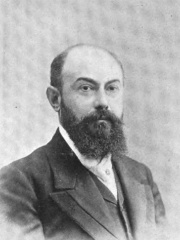
5. Pierre Janet (1859 - 1947)
With an HPI of 69.17, Pierre Janet is the 5th most famous French Psychologist. His biography has been translated into 29 different languages.
Pierre Marie Félix Janet (; French: [ʒanɛ]; 30 May 1859 – 24 February 1947) was a pioneering French psychologist, physician, philosopher, and psychotherapist in the field of dissociation and traumatic memory. He is ranked alongside William James and Wilhelm Wundt as one of the founding fathers of psychology. He was the first to introduce the link between past experiences and present-day disturbances and was noted for his studies involving induced somnambulism.

6. Théodule-Armand Ribot (1839 - 1916)
With an HPI of 66.23, Théodule-Armand Ribot is the 6th most famous French Psychologist. His biography has been translated into 27 different languages.
Théodule-Armand Ribot (18 December 1839 – 9 December 1916) was a French psychologist. He was born at Guingamp, and was educated at the Lycée de St Brieuc. He is known as the founder of scientific psychology in France, and gave his name to Ribot's Law regarding retrograde amnesia. In 1856 he began to teach, and was admitted to the École Normale Supérieure in 1862. He passed his agrégation in philosophy, this allowed him to teach in high school. He worked as a high school teacher in Vesoul (1866–1868), and then in Laval (1868–1872). On the 9 April 1888 at The Collège de France he gave the first lecture in psychology in France. In 1885 he gave a course of lectures on Experimental Psychology at the Sorbonne, and in 1888 was appointed professor of that subject at the College of France. His thesis for his doctors' degree, republished in 1882, Hérédité: étude psychologique (5th ed., 1889), was his most important and best known book. L'Hérédité psychologique is considered to have introduced Darwinian and Spencerian evolutionary ideas to France. Following the experimental and synthetic methods, he brought together a large number of instances of inherited peculiarities. He paid particular attention to the physical element of mental life, ignoring all spiritual or nonmaterial factors in man. In his work on La Psychologie anglaise contemporaine: l'école expérimentale (1870), he showed his sympathy with the sensationalist school, and again in his translation of Herbert Spencer's Principles of Psychology. Ribot was in 1889 the co-president (with Jean-Martin Charcot) of the first international congress for experimental psychology and in 1890 the president for the fourth congress. From the first 12 such international congresses, the International Union of Psychological Science eventually emerged. Besides numerous articles, he wrote on Arthur Schopenhauer, Philosophie de Schopenhauer (1874; 7th ed., 1896), and on the contemporary psychology of Germany (La Psychologie allemande contemporaine, 1879; 13th ed., 1898), also four little monographs on Les Maladies de la mémoire (1881; x3th ed., 1898); De la volonté (1883; 14th ed., 1899); De la personnalité (1885; 8th ed., 1899); and La Psychologie de l'attention (1888), which supplied useful data to the study of mental illness. In 1896 he introduced the term Anhedonia describing the inability to feel pleasure.

7. Émile Coué (1857 - 1926)
With an HPI of 63.52, Émile Coué is the 7th most famous French Psychologist. His biography has been translated into 20 different languages.
Émile Coué de la Châtaigneraie (French: [emil kue də la ʃɑtɛɲʁɛ]; 26 February 1857 – 2 July 1926) was a French psychologist, pharmacist, and hypnotist who introduced a popular method of psychotherapy and self-improvement based on optimistic autosuggestion. It was in no small measure [Coué's] wholehearted devotion to a self-imposed task that enabled him, in less than a quarter of a century, to rise from obscurity to the position of the world’s most famous psychological exponent. Indeed, one might truly say that Coué sidetracked inefficient hypnotism [mistakenly based upon supposed operator dominance over a subject], and paved the way for the efficient, and truly scientific. Coué’s method was disarmingly non-complex—needing few instructions for on-going competence, based on rational principles, easily understood, demanding no intellectual sophistication, simply explained, simply taught, performed in private, using a subject's own resources, requiring no elaborate preparation, and no expenditure. Most of us are so accustomed … to an elaborate medical ritual … in the treatment of our ills … [that] anything so simple as Coué's autosuggestion is inclined to arouse misgivings, antagonism and a feeling of scepticism. Coué's method was based upon the view that, operating deep below our conscious awareness, a complex arrangement of 'ideas', especially when those ideas are dominant, continuously and spontaneously suggest things to us; and, from this, significantly influence one's overall health and wellbeing. We possess within us a force of incalculable power, which, when we handle it unconsciously is often prejudicial to us. If on the contrary we direct it in a conscious and wise manner, it gives us the mastery of ourselves and allows us not only to escape … from physical and mental ills, but also to live in relative happiness, whatever the conditions in which we may find ourselves. As long as we look on autosuggestion as a remedy we miss its true significance. Primarily it is a means of self-culture, and one far more potent than any we have hitherto possessed. It enables us to develop the mental qualities we lack: efficiency, judgment, creative imagination, all that will help us to bring our life's enterprise to a successful end. Most of us are aware of thwarted abilities, powers undeveloped, impulses checked in their growth. These are present in our Unconscious like trees in a forest, which, overshadowed by their neighbours, are stunted for lack of air and sunshine. By means of autosuggestion we can supply them with the power needed for growth and bring them to fruition in our conscious lives. However old, however infirm, however selfish, weak or vicious we may be, autosuggestion will do something for us. It gives us a new means of culture and discipline by which the "accents immature", the "purposes unsure" can be nursed into strength, and the evil impulses attacked at the root. It is essentially an individual practice, an individual attitude of mind.

8. Henri Wallon (1879 - 1962)
With an HPI of 63.15, Henri Wallon is the 8th most famous French Psychologist. His biography has been translated into 19 different languages.
Henri Paul Hyacinthe Wallon (March 15, 1879 – December 1, 1962) was a French philosopher, psychologist (in the field of social psychology), neuropsychiatrist, teacher, and politician. He was the grandson of the historian and statesman Henri-Alexandre Wallon.

9. Françoise Dolto (1908 - 1988)
With an HPI of 61.54, Françoise Dolto is the 9th most famous French Psychologist. Her biography has been translated into 27 different languages.
Françoise Dolto (French: [dɔlto]; November 6, 1908 – August 25, 1988) was a French pediatrician and psychoanalyst.
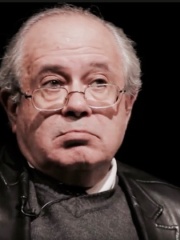
10. Jacques-Alain Miller (b. 1944)
With an HPI of 60.89, Jacques-Alain Miller is the 10th most famous French Psychologist. His biography has been translated into 16 different languages.
Jacques-Alain Miller (French: [milɛʁ]; born 14 February 1944) is a psychoanalyst and writer. He is one of the founding members of the École de la Cause freudienne (School of the Freudian Cause) and the World Association of Psychoanalysis which he presided from 1992 to 2002. He is the sole editor of the books of The Seminars of Jacques Lacan.
People
Pantheon has 12 people classified as French psychologists born between 1839 and 1944. Of these 12, 2 (16.67%) of them are still alive today. The most famous living French psychologists include Jacques-Alain Miller, and Boris Cyrulnik. The most famous deceased French psychologists include Jacques Lacan, Gustave Le Bon, and Alfred Binet.
Living French Psychologists
Go to all RankingsDeceased French Psychologists
Go to all RankingsJacques Lacan
1901 - 1981
HPI: 80.10
Gustave Le Bon
1841 - 1931
HPI: 77.78
Alfred Binet
1857 - 1911
HPI: 73.71
Princess Marie Bonaparte
1882 - 1962
HPI: 73.08
Pierre Janet
1859 - 1947
HPI: 69.17
Théodule-Armand Ribot
1839 - 1916
HPI: 66.23
Émile Coué
1857 - 1926
HPI: 63.52
Henri Wallon
1879 - 1962
HPI: 63.15
Françoise Dolto
1908 - 1988
HPI: 61.54
Jean Laplanche
1924 - 2012
HPI: 59.21
Overlapping Lives
Which Psychologists were alive at the same time? This visualization shows the lifespans of the 10 most globally memorable Psychologists since 1700.

